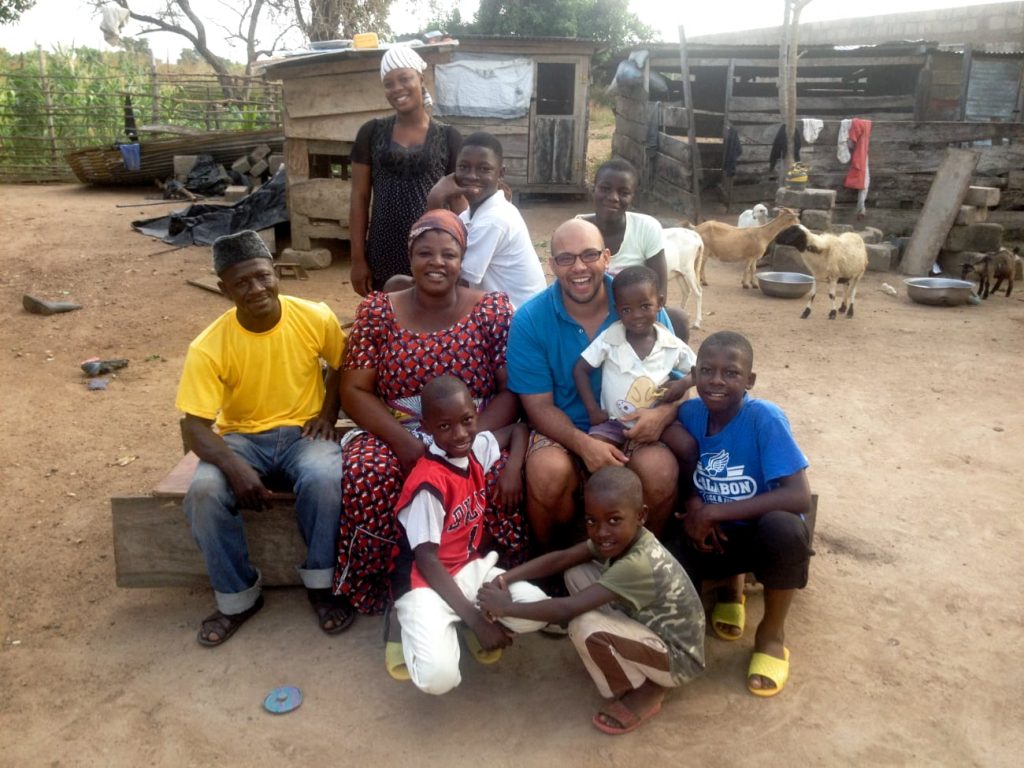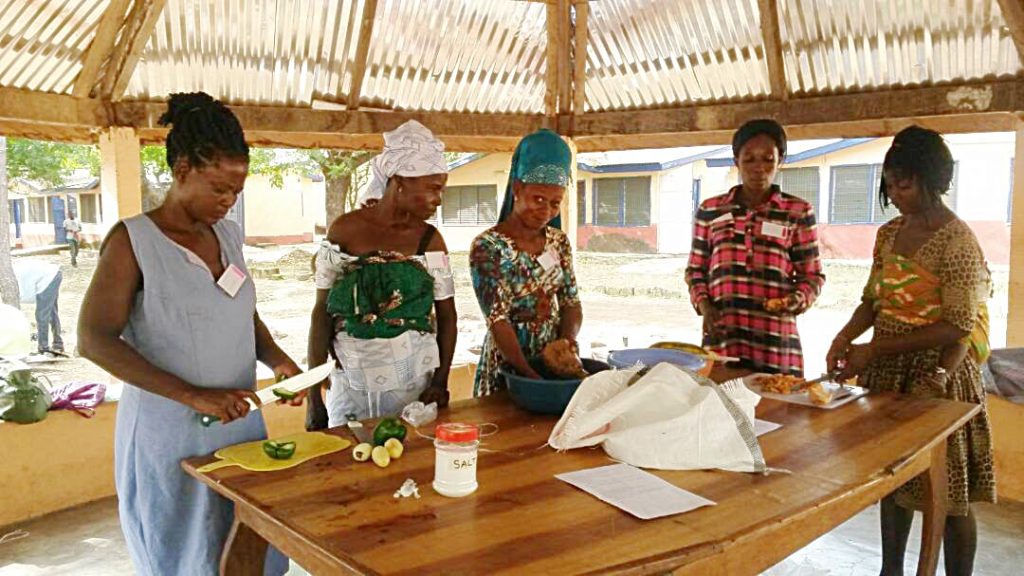By: Bryan Pride, Peace Corps Volunteer, Ghana
Imet the Lamini family the first day I arrived in my rural community of northern Ghana in 2015. Little did I know that this family of farmers would be the early adopters needed to increase availability and access to food in their own community.

Access to affordable and nutritious food was a common struggle in our community. Rates of chronic malnutrition are higher in the northern region of Ghana, especially among children, and many people are considered food insecure. The dry season in this region is also known as the “hunger months” because without rain, families are unable to cultivate new crops for up to six months.
As parents to six children and leaders in the community, my Ghanaian counterpart Adams Lamini and his wife Ashia knew something had to be done to improve access to nutritious food. Together, we constructed a large garden with local crops like ayoy, groundnuts and eggplant to grow more nutritious food for the family. Soon after, community members started visiting the garden to ask questions about what we were growing and how to use new crops they had never seen in their community, like carrots and squash.
Interested in learning more about gardening, I took Ashia, who doesn’t read or write, and her youngest son Yusef to a nutrition training for women hosted by Feed the Future. It took us a full day to travel to the rural training facility outside of Tamale, the Northern Region capitol, but the journey was well worth it. The training taught participants cooking methods that improve the nutritional content of traditional dishes. Ashia immediately began using what she learned at home and to teach women in the community. After seeing the community interest in the cooking techniques, Ashia and I successfully applied for a Feed the Future-funded grant to plant a community garden so that community members could learn how to grow a wider variety of vegetables for themselves.
We also hosted several cooking demonstrations using ingredients we grew to show women how to prepare koko (porridge), a local dish, with vegetables to increase vitamins and nutrients in the porridge, especially for young children. Eighty mothers of all ages came to our first cooking demonstration to watch as Ashia prepared a mango yam koko with coolicooli (groundnut powder) and moringa powder. The porridge we made transformed a staple dish into a nutritious and enjoyable meal for young children that combines the three food groups of Ghana: Go (carbohydrates), Grow (proteins) and Glow (fruits and vegetables).

But most importantly, the cooking demonstrations provided mothers an opportunity to gain confidence and skills to improve nutrition for their children. Many women in Ashia’s community are not able to get the help they need to fight malnutrition in their children and often times, they are targeted as bad mothers when their children fall sick. “If you are truly excited about the porridge and the nutrition of your children,” Aisha told the women, “you should take what you learned and practice it at home.” With Ashia’s encouragement and through her cooking demonstrations, mothers in the community now have a safe place to learn all about nutritional cooking free from judgement.
Ashia served as an inspiration to me throughout my service, and still leads cooking demonstrations today. She is proud that she is able to create a safe space for women and that despite her lack of formal education, she can take what she learned about nutrition and uses it to educate the women throughout the community. For me though, the most rewarding part of this transformation was hearing Ashia talk about the changes she saw in her own family. Yusef used to fall ill frequently without explanation. Now thanks to the nutritive cooking methods she uses at home, his health improved and his weight increased. Better nutrition really can start in your coal pot.
More About the Volunteer
Bryan Pride, a California native, began his service as an agriculture Volunteer in Ghana in October 2015. His service has focused on working to empower women to create food secure families. Bryan hopes to continue working in the field of food security upon completion of his service.
